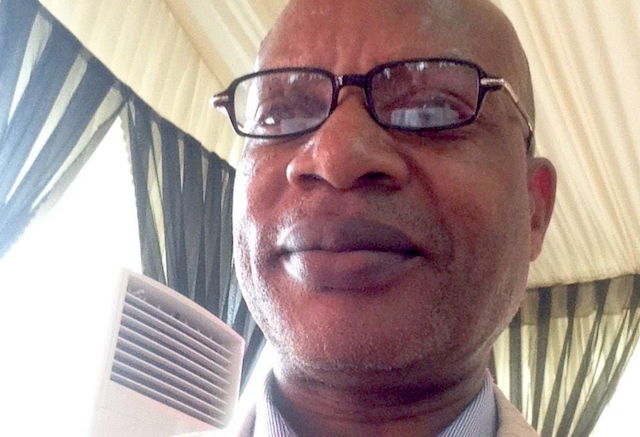Zamfara Governor Dauda Lawal complained in a viral video on Wednesday, September 3, 2025, that he knew the locations of the bandits terrorising his state, but that the power to direct security agencies to eliminate them resides elsewhere, and not in him as the Chief Security Officer of the State.
“I swear to Almighty Allah, wherever a bandit leader is located in Zamfara State, I know it. With my phone, I can show you their locations today. But we cannot act because we don’t have the power. If I had control over the security agencies, I assure you banditry would end in two months,” the governor said.
Recalling an incident where security forces ignored alerts of bandit attacks, including one in Shinkafi local government, “because they lacked clearance from Abuja” (Nigeria’s capital city, and the seat of government), Lawal, virtually resigning to faith, said: “Most of the time, I shed tears for my people because I can see a problem but cannot order security operatives to act in time. We have entrusted everything to God and surely, He will come to our rescue.”
Lawal’s frustration with the security in Zamfara, and the entire Northern states, indicates a troubling situation notwithstanding reports of security agencies’ “substantial degrading” of terrorism, banditry and other criminal activities across the country.
The decades-long insecurity in Nigeria attracted a renewed global attention lately, as United States President Donald Trump pressured President Bola Tinubu’s administration to tackle reported “Christian genocide” in Nigeria or he’d deploy American assets to bomb identified enclaves of terrorists he claimed have “killed thousands of Christians in Nigeria.”
As if to confirm, and bluff Trump’s claim, insurgent activities have heightened in Northern Nigeria, with terrorists attacking military formations, and ambushing troops in the North-East, killing scores, and executing captured soldiers, including a Brig.-General, live-streamed on social media.
On Sunday, November 23, five police officers lost their lives and two others sustained injuries, as suspected bandits ambushed a tactical team in Sabon Sara village, Darazo local government of Bauchi State, on a visibility patrol aimed at preventing and managing farmer–herder conflicts.
On Friday, November 21, bandits stormed St Mary’s primary and secondary school in Papiri ward of Agwara local government of Niger State, and took away 303 pupils (girls and boys) and 12 (4 females, males) teachers – bringing to memory the high-profile abductions of 276 students of Government Secondary School, Chibok, in Borno State on April 14, 2014; and 110 students of the Government Girls Science and Technical College (GGSTC), Dapchi, Yobe State, on February 19, 2018.
(While over 80 of the Chibok schoolgirls remain in captivity as of the 10th anniversary of the abduction on April 14, 2024; a Christian captive among the Dapchi schoolgirls, Leah Shariba, was denied freedom on March 21, 2018, when her abductors released 106 of the girls, for refusing to covert to Islam, and remains the poster abductee till this day)
On Monday, November 17, bandits invaded the Government Girls Comprehensive Secondary School for Danko/Wasagu local government of Kebbi State, killed the school’s Vice Principal and a military personnel, and abducted 25 students.
The next day, bandits killed three worshippers, and abducted 38 others inside a church at Eruku in the Ekiti local government of Kwara State. And the following day, a jihadi group abducted Revd Father Pascal Bobbi from his parish in Kaduna State, and slaughtered him in cold blood.
That these attacks and abductions – which feed into the narrative of “Christian genocide” in Nigeria – have resurged in educational institutions exposes the government Safe School Initiative (SSI) programme, designed to protect especially boarding schools in remote areas, as inefficient and ineffective to deter attackers, who look to operate in cahoots with public officials, politicians, religious and traditional leaders, security operatives, and local criminals.
Like in the Chibok abduction when the school authorities reportedly ignored the Borno State government order to close down, and relocate the students to the state capital, Maiduguri, to write their WASC examinations; the authorities of St Mary’s school allegedly shunned the Niger government’s directive closing down boarding schools in the area.
The Secretary to the Niger State Government, Alhaji Abubakar Usman, noted this in a statement, thus: “This unfortunate incident comes despite prior intelligence report obtained by the government indicating an increased threat level in parts of Niger North senatorial district.
“In response to these credible security alerts, the State Government had earlier issued a clear directive suspending all construction activities and ordering the temporary closure of all boarding schools within the affected zone as a precautionary measure.
“Regrettably, St. Mary’s School proceeded to reopen and resume academic activities without notifying or seeking clearance from the State Government, thereby exposing pupils and the staff to avoidable risk.”
Do heads of these female or mixed boarding schools in the North refuse, on their own volition, the state governments’ directives to shut down in areas of ongoing criminal activities, or they carry out counter-orders from third parties intent on sabotaging the system for whatever reasons: monetary, political, religious, or sectional?
The Bishop of the Catholic Kontagora Diocese and Chairman of the Niger Christian Association of Nigeria (CAN), Most. Revd Bulus Dauwa Yohanna, who updated the number of abductees from 215 to 303 (female and male) students, and 12 (4 female and 8 male) teachers, denied the charge that the school rejected the directive to shut down, saying neither the school nor the Diocese recieved such a circular.
Accusing the government and security agencies of playing propaganda with alleged prior warnings to the school to shut down its boarding facilities, Bishop Yohanna asked the government to stop shifting blames and using the circular as a way to paint the school as disobedient to official directives.
Yohanna’s words: I have just got back to the village this night after I visited the school where I also met with parents of the children, to assure them that we are working with the government and security agencies to see that our children are rescued and brought back safely, but was greeted with what I term ‘propaganda’ that the school was given a prior warning by the government through a circular.
“That is not true, we did not receive any circular; it must be an afterthought and a way to shift blame. In the past, around 2022 when we heard of rumours of security challenge, we did not hesitate, we shutdown immediately. Is it when there is a circular from the government asking us to shutdown that we will now not obey?”
There’ve been reports of security agencies rejecting or ignoring “actionable intelligence” to prevent impending attacks; failing to respond or quickly to distress calls about ongoing attacks; or refusing to pursue retreating attackers, such as in Chibok when security agencies allegedly “allowed” the terrorists a 72-hour “free passage” to transport the abducted schoolgirls in trucks to the Sambisa forest.
Worrying are attacks carried out within minutes of security agencies withdrawing their entire operatives from or retaining a limited number at targets that attackers have advertised in advance for assaults. This occurred lately in Zamfara and in Kebbi, whose Governor, Dr Nasir Idris, alleges “sabotage” by security operatives.
“We got credible intelligence from the DSS (Department of State Services) that this school was likely to be attacked… The decision was that we would provide round-the-clock protection. This is clear sabotage,” the governor said, as he’s initiated a legislative investigation into the troops’ withdrawal before the bandits struck.
A teacher, who survived the attack, told reporters that heavily-armed security personnel had spent Sunday night at the school, interacting and taking photographs with students. But “sadly, for yet-to-be-determined reasons, they reportedly left the school before dawn,” and about 30 minutes after they withdrew, the kidnappers struck,” the teacher said.
What about a harrowing incident on November 9 when security was fully deployed in Yan Kwada village of Faruruwa, Shanono local government of Kano State, but bandits came, threw away crying babies, seized their breastfeeding mothers, rustled cattle to the bargain, and rode away triumphantly on motorcycles?
Chairman of the Community Security Forum (CSF) of Faruruwa, Alhaji Yahya Bagobiri, confirmed the incident to newsmen on November 10, saying: “We continue to see these attacks almost daily despite the presence of the military and other security forces. Even yesterday (Sunday), we heard that bandits were coming to attack, and we alerted the security, but nothing was done until they came around 9 p.m.
“They raided homes and whisked away five nursing mothers. What the bandits did was that, anywhere they saw a nursing mother, they threw away the baby and took away the mother. One of them luckily escaped back to her family, but we don’t know the whereabouts of the remaining four women whose babies have continued to cry to be breastfed.”
As of Sunday, November 23, all 38 church worshippers abducted from Eruku in Kwara had been set free, as stated by President Tinubu via his verified X handle, @officialABAT, and confirmed by Governor AbdulRahman AbdulRazaq; while 50 of the 303 pupils seized at Danko/Wasagu in Niger had escaped to freedom, as confirmed by the Niger CAN chairman, Bishop Yohanna.
The seriousness of the latest insecurity in Nigeria has elicited a chain of staccato reactions from the highest echelons of government: • President Tinubu cancelled his travel to Angola and South Africa for international engagements. • Directed the Minister of State for Defence, Dr Bello Matawalle, to relocate to Kebbi, to oversee rescue of the kidnapped students there. • Ordered the withdrawal of police personnel attached to VIPs for deployment for regular policing duties.
• Newly-appointed Chief of Army Staff, Lt. Gen. Waidi Shaibu, receiving a baptism of fire early on in his position, visited Kebbi the same day of the abduction, to rally the troops to action. • Vice President Kashim Shettima also visited Kebbi to commiserate with the victims, and convey government’s response to the attack. • He’s representing Nigeria at the G-20 summit in South Africa, and the African Union meeting in Angola.
• Senate passed a motion calling for recruitment of 100,000 soldiers to boister the military, and a probe of the Safe School Initiative; • Forty-one Unity Schools across Nigeria, and all public primary and secondary schools in Katsina closed down; and many other states in the North followed suit, shutting boarding and day schools, and some institutions of higher learning.
Realistic as Tinubu’s change of mind to travel is, it would’ve been unthinkable, and unreasonable for him to leave a burning house for a “foreign jamboree,” as critics often classify such travels. Who would put out the fire on his behalf and in his absence? Nigeria would be in a conflagration or ashes by the time he returned to the country! His decision is apt under current security exigencies!
The Senate call for recruitment of additional personnel for the military, desirable and timely, misses the point. Agreed that 100,000 new officers will boost the military’s overstretched personnel due to deployments for internal security rather than to stem external aggression against the territorial integrity of Nigeria!
The country needs more than more numbers for the military alone when insecurity has overwhelmed over half of the population and landmass, and threatened the socio-economic and political wellbeing of the people. State Police is of utmost and urgent demand, and President Tinubu’s promised to work with the National Assembly for its creation!
LAST LINE: In part (2) of this header, a look at how State Governors, especially the 19 Northern Governors, were against before they’re for State Police; and how, as “Chief Security Officers,” they can truly be in charge and control of security agencies in their domains!



























